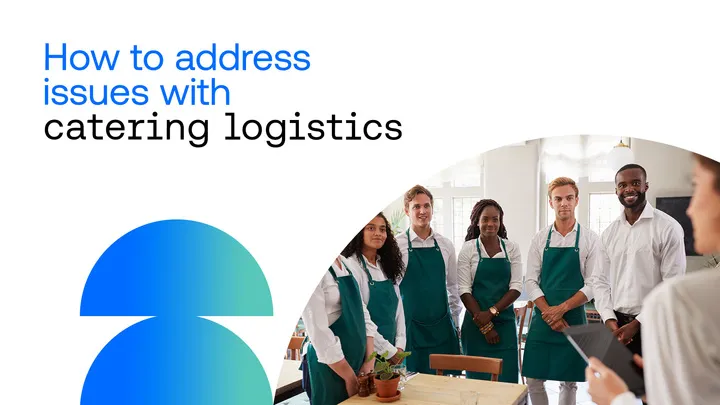Published • 19 Aug 2025
1. Overwhelming Order Complexity and Coordination
When orders come in through emails, phone calls, and spreadsheets, confusion is inevitable. Miscommunications lead to incorrect menus, delayed deliveries, or incomplete setups. Coordinating large-scale events requires synchronizing menu prep, staffing, transportation, and setup with precision.
One study by IDC (The Document Disconnect) found that 43% of employees must manually copy and paste information between systems because their tools do not communicate automatically.
A well-documented plan and centralized order system can eliminate many of these pitfalls. Industry operators stress the value of having “one source of truth” for every order, from initial request to final delivery.
Key takeaway: Centralized and accessible order management ensures every team member works from the same plan, reducing errors and wasted time.
2. Staffing Challenges and Real-Time Execution
Staffing for catering events is unpredictable. No-shows, last-minute schedule changes, and mismatched skill sets can strain service quality. Large events compound the issue as teams must handle tight deadlines and adjust on the fly.
Effective operators use real-time scheduling tools and assign clear on-site leadership for each event. This prevents bottlenecks and ensures someone can make fast decisions when problems arise.
Key takeaway: Real-time staff coordination and clear role assignments keep events running smoothly even when the unexpected happens.
3. Food Waste, Cost Pressures, and Operational Profits
Food waste is a hidden drain on catering profits. In the United States, restaurants collectively waste 11.4 million tons of food annually, costing billions in lost value. Waste often comes from overproduction, poor inventory tracking, or unexpected guest count changes.
Operators who monitor ingredient usage closely, forecast demand accurately, and portion appropriately can significantly reduce waste. These practices protect margins and align with sustainability goals.
Key takeaway: Tight inventory control and accurate forecasting reduce waste, cut costs, and support profitability.
4. Logistics of Perishables, Deliveries, and Accuracy
Transporting catering orders is high stakes. Without proper temperature control, perishable foods can lose quality or become unsafe. Inaccurate inventory tracking or poorly timed deliveries can derail service and damage client trust.
Cold-chain integrity, reliable delivery scheduling, and clear hand-off processes are critical. Teams should also anticipate venue-specific challenges like limited parking or restricted prep areas.
Key takeaway: Reliable cold storage, timed deliveries, and site-specific preparation protect food quality and service standards.
How 365 Catering Solves These Challenges
365 Catering offers a suite of digital tools that directly address these pain points.
- Centralized Digital Order Management: All orders, approvals, and communications are managed in one platform.
- Real-Time Team Coordination: Assign drivers, staff, and roles directly in the dashboard.
- Data-Driven Waste Reduction: Track ingredients and portions to avoid overproduction.
- Reliable Perishable and Delivery Management: Built-in logistics workflows ensure accurate and on-time deliveries.
- Scalable Staffing Tools: Keep teams in sync for events of any size.
With 365 Catering, operators can replace the chaos of manual coordination with predictable and consistent execution, giving them more control over profitability, service quality, and client satisfaction.
Ready to learn more?
Contact us today to request information or schedule a demo and discover how 365 can help transform your operation.

